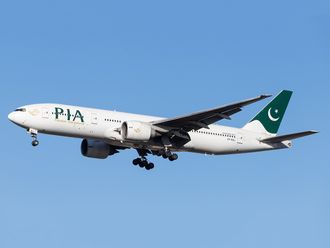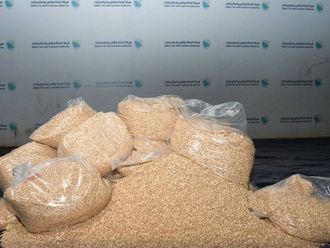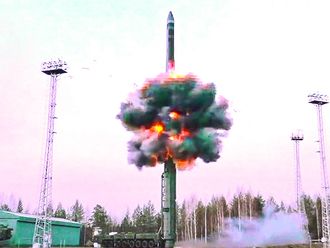Peshawar: Suspected American missiles hit a house in northwestern Pakistan near the Afghan border Thursday, killing seven alleged militants.
The attack was the latest strike in a ramped up campaign against Al Qaida and Taliban fighters in the rugged tribal region, intelligence officials said.
The drone strike in North Waziristan was the third attack there in the past 24 hours. The region is home to hundreds of Pakistan and foreign Islamist militants, many belonging to or allied with Al Qaida and the Taliban.
It is also the base of a powerful insurgent group that US officials say is behind many of the attacks just across the border in Afghanistan.
Thursday's air strike in the Datta Khel area killed five unidentified "foreign" and two local militants, three intelligence officials said. They did not give their names in line with the policy of the agency they work for. It is all but impossible to independently verify the accounts of intelligence officials.
The region is too dangerous for outsiders to visit the scene of the attacks and US officials do not acknowledge firing the missiles, much less discuss who they are targeting.
There have now been at least 20 suspected US missile strikes in Pakistan this month, many of them in North Waziristan.
There were 21 such attacks in September, nearly double the previous monthly record. They are fired by unmanned drones that fly over the region for hours.
Top technology
The craft are equipped with high-powered cameras that provide real time footage of events on the ground to operators believed to be in the US.
Washington is under pressure to beat back the insurgency in Afghanistan and bring its troops home.
Many of the missile strikes are reported to have hit militants focused on fighting in Afghanistan and using North Waziristan as a safe haven. The Pakistani army has so far resisted US pressure to launch an offensive in the region, as it has in other border areas.
Pakistani officials often publicly criticise the strikes, but the surge over the past two months has not led to increased protests, suggesting the army does not object to them.
The silence over the drones contrasts with the outcry over incursions into Pakistani territory by Nato helicopters this month that led to Islamabad block a key supply route for US and Nato forces in Afghanistan.
Pakistan's army is widely believed to provide intelligence for the drone attacks and even allows aircraft to take off from a base inside Pakistan. Human rights groups have raised concerns of civilian casualties.












